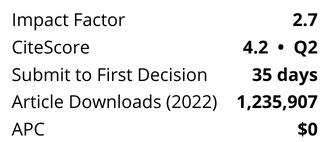This study evaluates the sequenced anaerobic-aerobic treatment of hemp bark and hemp stem wood black liquors with respect to COD removal efficiency and detoxification. Anaerobic toxicity assays revealed that soda pulping liquors derived from hemp are just as toxic as those derived from wood. Hemp bark and stem wood black liquors caused 50% inhibition at concentrations of 5.9 and 4.5 g COD/l, respectively. Long term experiments were conducted in lab-scale upflow anaerobic sludge blanket (UASB) reactors at 30°C. Black liquor was fed at sub-toxic concentrations (< 4 g COD/l). In the bark column loadings were applied up to 17.5 g COD/l*d with COD and BOD5 efficiencies of 56.0 and 87.9%, respectively. In the stem wood column loadings up to 18.4 g COD/l*d were reached with COD and BOD5 efficiencies of 42.3 and 81.0%, respectively. Aerobic post-treatment displayed only minor extra COD removal and a strong increase of color levels. After sequenced anaerobic-aerobic treatment, the COD removal was 70.9 and 58.4% for bark and stem wood liquor, respectively, whereas the BOD5 removal exceeded 98%. Strong detoxification was accomplished after anaerobic-aerobic treatment, as was demonstrated by anaerobic toxicity assays. After anaerobic-aerobic treatment bemp bark and stem wood black liquors caused 50% inhibition at concentrations of 135 and 21.5 g COD/l, respectively.
Skip Nav Destination
Article navigation
Research Article|
March 01 1994
Sequenced Anaerobic-Aerobic Treatment of Hemp Black Liquors
S. Kortekaas;
S. Kortekaas
*Department of Environmental Technology, Wageningen Agricultural University, P.O. Box 8129, 6700 EV Wageningen, The Netherlands
Search for other works by this author on:
H. S. Doma;
H. S. Doma
**Department of Water Pollution Control, National Research Centre, Dokki, Cairo, Egypt
Search for other works by this author on:
S. A. Potapenko;
S. A. Potapenko
***Anaerobic Biotechnology Sector, Ukrainian Pulp and Paper Institute, Kiev, 252195, The Ukraine
Search for other works by this author on:
J. A. Field;
J. A. Field
*Department of Environmental Technology, Wageningen Agricultural University, P.O. Box 8129, 6700 EV Wageningen, The Netherlands
Search for other works by this author on:
G. Lettinga
G. Lettinga
*Department of Environmental Technology, Wageningen Agricultural University, P.O. Box 8129, 6700 EV Wageningen, The Netherlands
Search for other works by this author on:
Water Sci Technol (1994) 29 (5-6): 409–419.
Citation
S. Kortekaas, H. S. Doma, S. A. Potapenko, J. A. Field, G. Lettinga; Sequenced Anaerobic-Aerobic Treatment of Hemp Black Liquors. Water Sci Technol 1 March 1994; 29 (5-6): 409–419. doi: https://doi.org/10.2166/wst.1994.0734
Download citation file:
Sign in
Don't already have an account? Register
Client Account
You could not be signed in. Please check your email address / username and password and try again.
Could not validate captcha. Please try again.
eBook
Pay-Per-View Access
$38.00




%20cropped.png?versionId=5945)